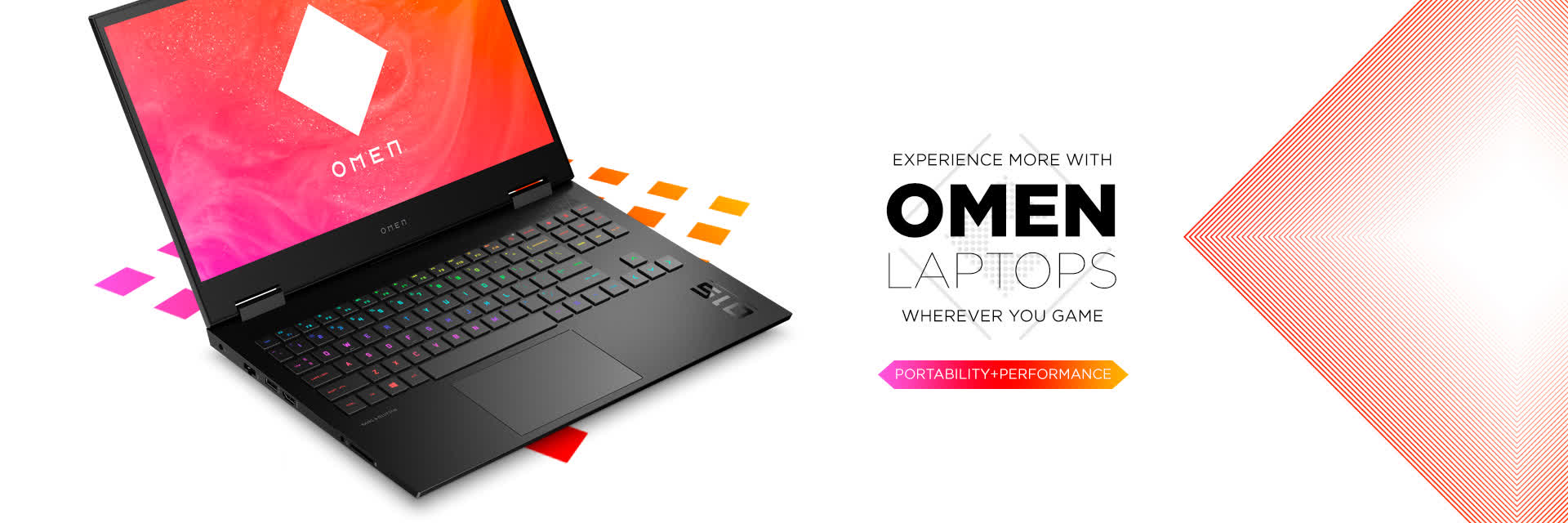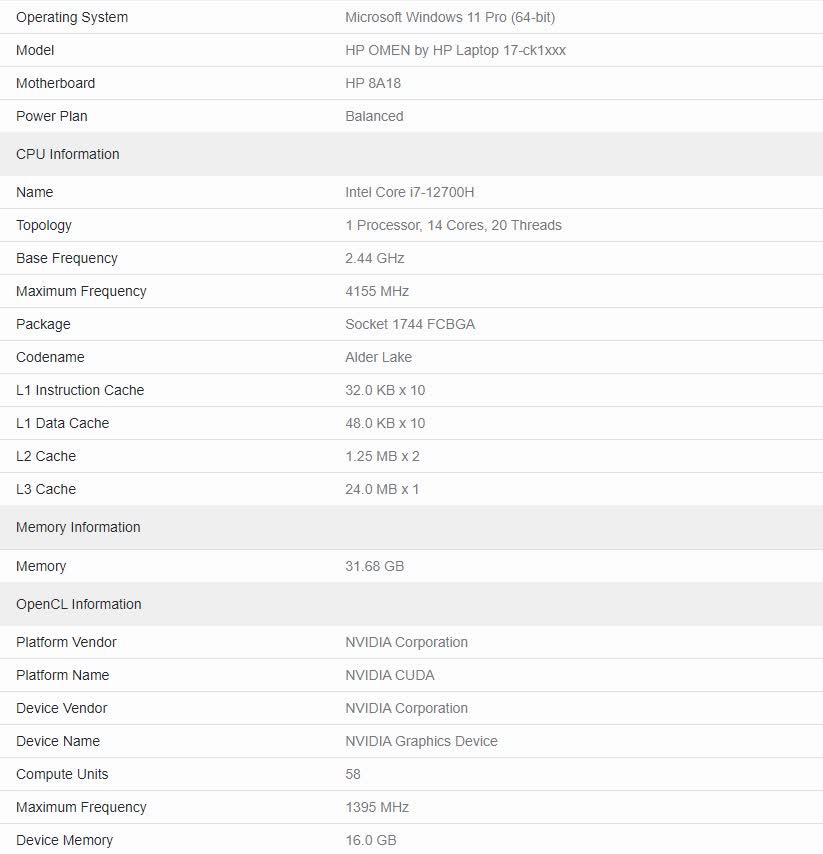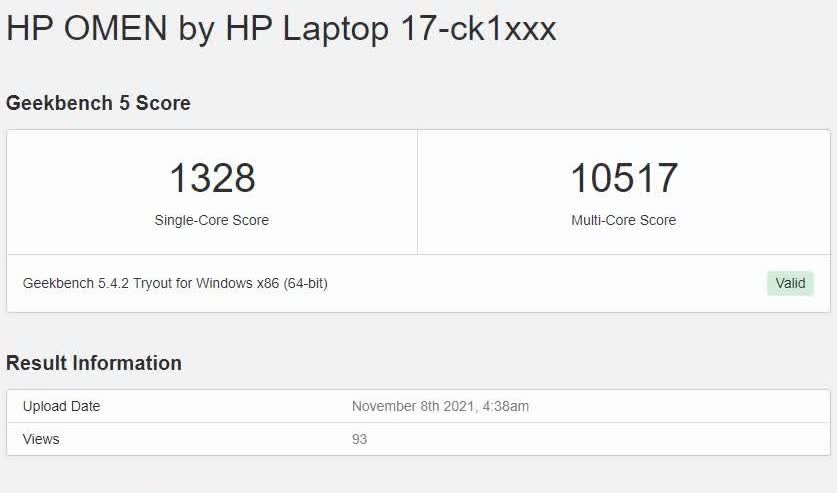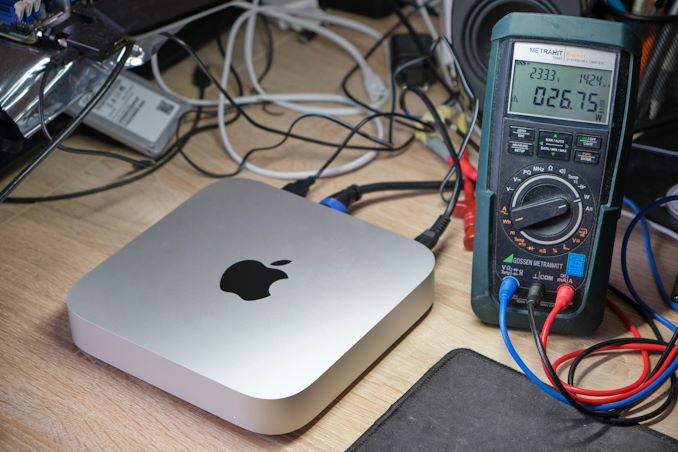Why it matters: More benchmarks for new Intel and Nvidia hardware showed up on Geekbench this week. This time, it's Intel's and Nvidia's as-of-yet unreleased i7-12700H and laptop RTX 3080 Ti, respectively. The leaks, in multiple entries, offer scant clues on the CPU and GPU's performance against their neighbors.

The entries emerged on Geekbench on Monday, after which BenchLeaks picked them up. They all appear to be for a new entry in HP's Omen gaming laptop series which offers an early peek at the Alder Lake i7-12700H processor and Nvidia RTX 3080 Ti GPU.
All of the entries show the i7 having a 2.45GHz base frequency and a boost frequency of around 4.1GHz, with 14 cores, 20 threads, and 24MB of L3 cache. Its Geekbench 5 scores are 1328 for single-core, and 10517 for multi-core. GPU information, however, is a bit less consistent.

One entry clearly names the laptop 3080 Ti with no other information outside of performance in the Vulkan graphics API, with an overall score of 90114. Another shows an anonymous "Nvidia Graphics Device" with an OpenCL API score of 127392, 16GB of VRAM, a max frequency of 1395MHz, and 58 compute units. Compute units are only used in AMD graphics cards, so this may actually mean 58 of Nvidia's streaming multiprocessors, of which the laptop 3080 has only 48.
Wccftech's comparisons actually put the laptop 3080 Ti a bit below the laptop 3080, but this could simply be because the drivers for the 3080 Ti aren't ready yet. The i7-12700H in a multi-core comparison is able to outdo the 11th-generation i9-11980HK.
A leaked benchmark late last month put the i9-12900HK above Apple's latest M1 Pro and M1 Max.
https://www.techspot.com/news/92152-laptop-i7-12700h-3080-ti-benchmarks-leak-ahead.html

